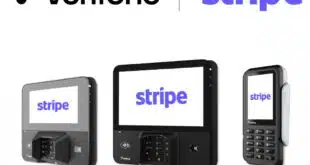By Paul Schaus
Considering new regulations on general-purpose prepaid cards, is it worth it for banks to still be in the business?
The answer is: Maybe not.
If banks have enough customers who are underbanked or unbanked, as well people just on a tight budget clamoring for prepaid cards, prepaid products can generate additional fee income. But if banks are only marginally in the business line, it might not be worth the added costs and compliance burden.
Last November, the Consumer Financial Protection Bureau issued proposed rules that would require more disclosures to, and permission from, cardholders for banks to charge overdraft fees or withdraw money from the card to pay other debt. If banks offer credit products in connection with prepaid accounts, the cards are then subject to additional compliance requirements under the Truth in Lending Act and Credit Card Accountability Responsibility and Disclosure Act, including requirements to verify a consumer\'s ability to repay before credit is extended, as well as limitations on interests and fees.
That’s not all. In January, the Federal Deposit Insurance Corp. issued guidance that clarified what it considered were brokered deposits, and for the first time the agency included prepaid cards. As such, banks issuing prepaid cards might now need to set aside more capital to offset their additional brokered deposits and might have to pay higher FDIC insurance premiums if their total brokered deposits rise above a predetermined level.
Indeed, soon after the FDIC clarified its rules, The Bancorp in Wilmington, Del., said the FDIC assessed the bank an insurance premium surcharge amounting to an additional 10 basis points because it had to reclassify its prepaid cards as brokered deposits.
But it hasn’t stopped The Bancorp from issuing prepaid cards, which typically generate more than $10 million in additional fee income for the bank each quarter. Other banks have even expanded the business line after the new regulations, including MetaBank in Sioux Falls, S.D., another large player in the prepaid space.
TD Bank in Cherry Hill, N.J., in March launched TD Connect Card, and then last month released a survey of 1,300 consumers showing that Millennials in particular are demanding such cards because the generation that came of age during the Great Recession now wants to limit overspending. One in four Americans use or have used a prepaid card in the past two or three years, and that jumps to 33 percent for people between ages 18 and 34. For all of the survey respondents who had used prepaid cards, most said they did so to help them better budget and to better protect their personal information from identity theft.
The FDIC rules on brokered deposits impact banks that specialize in prepaid cards, such as MetaBank and The Bancorp Bank, because they issue cards on behalf of other organizations.
More than half of the nation’s banks offer prepaid cards, according to the American Bankers Association, and it’s too early to tell if banks are scaling back or exiting from the business line because of the new regulations. Demand certainly continues to grow for the products, which represent the fastest-growing segment of card-based payments. And banks might not want to miss out on the additional fee revenue, provided they structure the products accordingly. Offering prepaid cards in lieu of checking accounts to some customers can also help reduce the overall processing cost of the relationship.
But if a bank is only marginally in the business because not enough consumers in its market are asking for the products, then the institution might need to reassess whether it’s worth the potential additional cost and burden to comply with the new regulations.
Paul Schaus is the president, chief executive, and founder of CCG Catalyst, Phoenix, Ariz. Reach him at consultant@ccg-catalyst.com.





